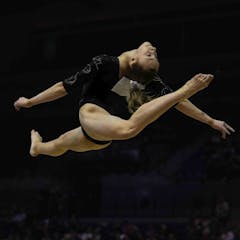
Artikel-artikel mengenai Gender equality
Menampilkan 1 - 20 dari 530 artikel

In psychology it’s known as the gender-equality paradox.

Gymnastics New Zealand has modernised its uniform rules, which is another small step towards improved gender equity in sports.

A stained-glass window, which shows Jesus as a Black man for the first time, tells a story not only of race but of gender, class and ethnicity.

The potential repeal of the ban on female genital mutilation poses a threat to the well-being of girls in The Gambia.

Lounge creator and artist Kirsha Kaechle said the lounge was being ‘experienced’ by men exactly as intended – by excluding them.

Businesses with more than 500 employees will need to meet targets against at least three gender equality indicators.

While there is much to applaud in the government’s strategy, it neglects to deal with the unequal gender impacts of climate change.

Enrolling girls will not automatically make a boys school more inclusive. Schools need to look at things such as what is taught, extra-curricular activities and support for students.

Taiwan’s presidential candidates failed to address women’s interests and resonate with women voters.

We have found that young people have a straightforward desire for authentic and healthy relationships.

New research shows giving women more resources to balance their competing work and domestic lives would help even gender disparity at all levels of political representation.

Hage Geingob’s legacy as a moderniser will live on despite contradictions and unfulfilled promises.

With an evidence-based strategy and careful evaluation, gender parity in science is achievable.

From primary school to academic positions, despite some progress, gender inequality continues to be rife.

The Women’s World Cup is emerging from the shadow of its male counterpart, breaking attendance records and drawing a global audience.This surge in popularity is a win for gender equality.

Although there have progress to achieve gender equality, women are still under-represented in diplomacy in Asia.

The emotional realities experienced by women coaches are adversely impacting their ability to thrive in a culture that doesn’t recognize or support key parts of their work.

By examining the FIFA Women’s World Cup performances, we can gain insights into the efforts countries are making to address gender inequality beyond sports.

The IOC needs to look beyond gender parity and work with international federations to address athletes’ conditions of participation in sports to achieve true gender equality.

And men struggle more than women with female breadwinning arrangements.
